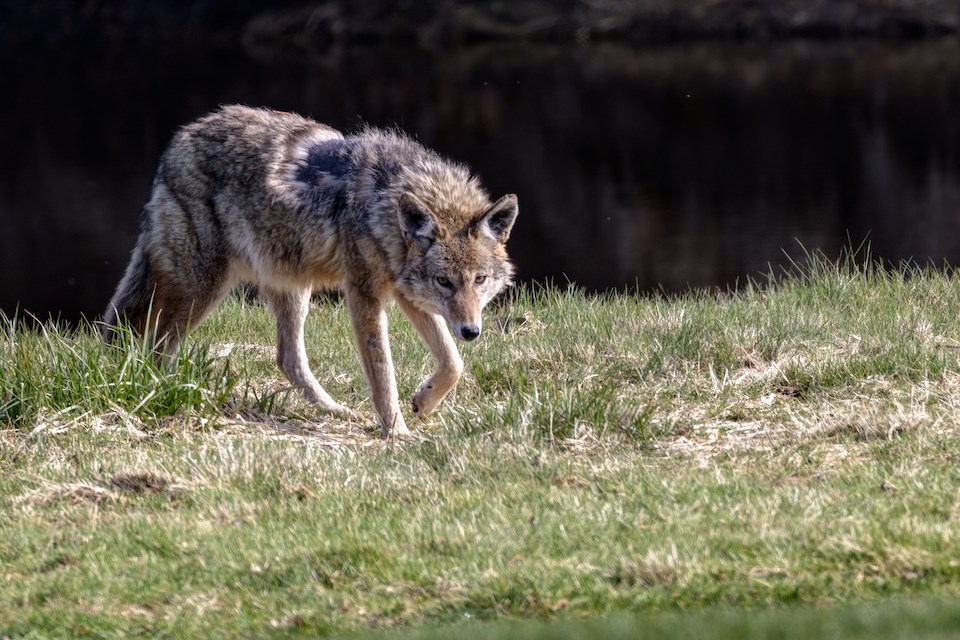Coyotes pose a significant risk to the community when humans interfere with their natural behaviour - and that's why Vancouver has a hefty fine for anyone caught feeding them.
Anyone caught feeding wildlife, including coyotes, birds, rodents, squirrels and raccoons, is subject to a fine of $500.
The Vancouver Board of Parks and Recreation warns people that the wild canines are in the middle of their breeding and denning season, meaning they are more active and potentially aggressive.
Coyotes start breeding in January and litters start emerging a few months later, in late March and April. During this time, they are more active, establishing dens, guarding their territories, and gathering extra food for their pups.
While they are usually active around dawn and dusk, coyotes will be visible more often during the day as they protect their young.
"This could look like guiding humans and pets away from their dens and adopting a more defensive stance when feeling threatened," according to the Park Board.
Vancouverite Frances Bula mentioned in a post on X (formerly Twitter) that she'd seen an "energetic coyote on the False Creek south shore seawall going after ducks and geese."
Another local social media user shared an image of a coyote "trotting down the sidewalk in broad daylight." He noted that the animal was "bold."
Other Vancouverites mentioned coyote sightings, including one between Kits and Jericho beaches and another about an "enormous coyote walking down the sidewalk on the West Mall at UBC." The second person mentioned that the students didn't realize it was a coyote and not a large dog.
Vancouver Park Board works to keep coyote encounters low
To keep interactions with humans at a minimum, the park board may temporarily restrict areas to secluded, forested spots near busy trails, including ones in Stanley Park, while the coyotes nurture their pups.
The Park Board offers several tips to foster peaceful coexistence with coyotes and other wildlife.
Tips for peaceful coexistence
- Never intentionally leave food on the ground, or offer food to wildlife. Food attractants are the main reason coyotes become habituated to humans and hugely increase the chances of conflict.
- Respect trail closures to ensure denning coyote families are not disturbed.
- Keep pets on leash at all times, except in designated off-leash dog areas.
- Dispose of waste in bins provided.
- Give wildlife space. If you see a coyote, slowly back away. If the animal approaches, act aggressively by standing tall and yelling. Most importantly, do not turn your back or run. Coyotes have a natural instinct to chase and will pursue.
What the Vancouver Board of Parks and Recreation is doing to support coexistence
- Monitoring for any feeding of wildlife which contravenes the Parks Control By-law that strictly prohibits this in any Vancouver parks. Anyone caught feeding wildlife, including coyotes, birds, rodents, squirrels and raccoons, is subject to a fine of $500.
- Adopting proactive and strategic aversion conditioning to reinforce healthy boundaries with wildlife and avoid developing patterns of aggressive behaviour in new coyote populations.
- Offering education and awareness to the public, including updates on related activities or closures.
- Supporting the Stanley Park Ecology Society’s Coexisting with Coyotes program, which reduces conflict between people, pets, and coyotes in Stanley Park and around the city.
- Working closely with wildlife experts and the Province on long-term research and monitoring of coyote populations and behaviours within Vancouver parks.




